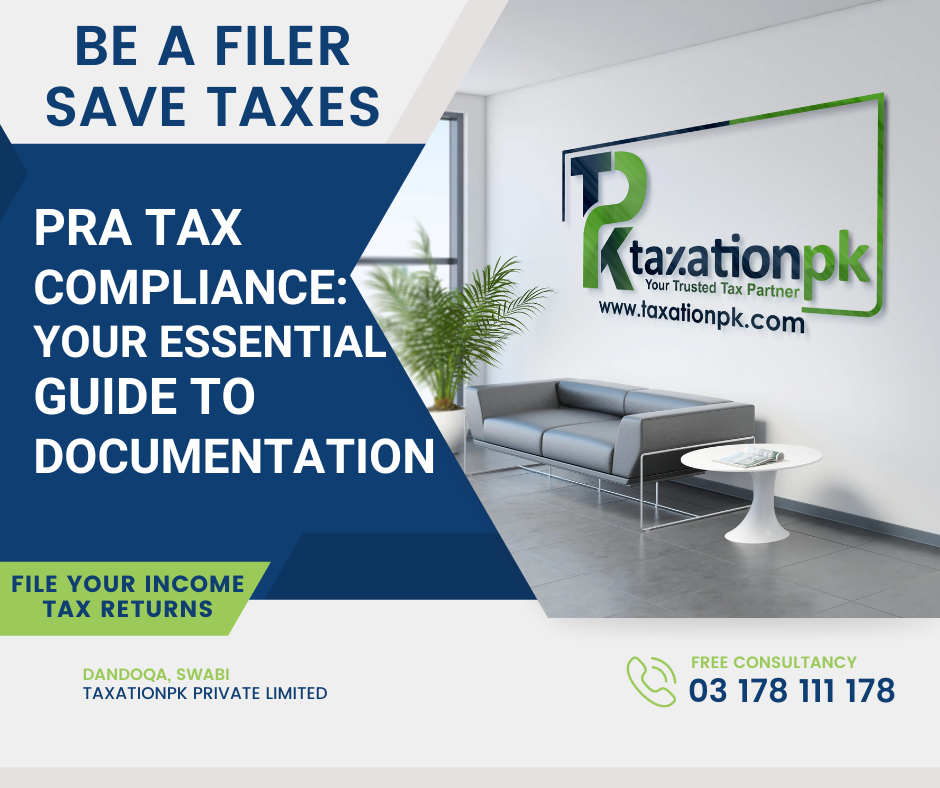Navigating the complexities of tax compliance can be challenging, and understanding record-keeping requirements is crucial. This article delves into the essential documentation and record-keeping obligations under the Punjab Revenue Authority (PRA) Act, empowering businesses and individuals to comply seamlessly.
Tax Invoices:�
- For Service Providers: Registered persons providing taxable services must issue numbered and dated tax invoices. These invoices serve as the foundation for calculating and reporting your tax liability.
- Essential Information: Each invoice must include specific details like the service provider’s and recipient’s information, service description, value excluding and including tax, and tax amount.
- Additional Requirements: The PRA may specify standardized invoice formats or electronic issuing procedures for certain categories of businesses.
Maintaining Records for Accurate Reporting:
- Comprehensive Records: Registered persons must maintain meticulous records of taxable (and exempt) services provided, goods and services received, imports, and other financial transactions.
- Record-Keeping Details: These records should include specific information such as descriptions, quantities, values, tax amounts, supplier/customer details, and bank statements.
- Additional Record Types: The PRA may require specific industries to maintain additional records like inventory, utility bills, salary details, and agreements for audit purposes.
Digitalization and Automation:
- Electronic Invoicing: The PRA encourages electronic invoicing for efficiency and accuracy. Stay updated on regulations regarding approved software and procedures.
- Business Bank Accounts: The Authority may require designated business bank accounts for tax-related transactions for specific categories of businesses.
- Auditable Accounts: Registered persons subject to audit under the Companies Act must submit audited accounts with tax payment certifications.
Retention and Production of Documents:
- Document Retention Period: Records and documents must be retained for eight years after the relevant tax period or until the finalization of any tax-related proceedings, whichever is later.
- Production of Records: Upon request from authorized officers, you must produce any relevant records or electronic data for review and verification.
Key Takeaways:
- Accurate and complete record-keeping is vital for fulfilling your PRA compliance obligations.
- Stay informed about updates to invoice formats, electronic filing procedures, and record-keeping requirements.
- Consult a tax advisor for guidance on complex record-keeping situations or specific industry requirements.
By adhering to these guidelines and maintaining meticulous records, you can ensure smooth compliance with PRA documentation and record-keeping regulations, minimizing the risk of penalties and audits. Remember, transparency and accurate reporting are key to responsible tax citizenship.






